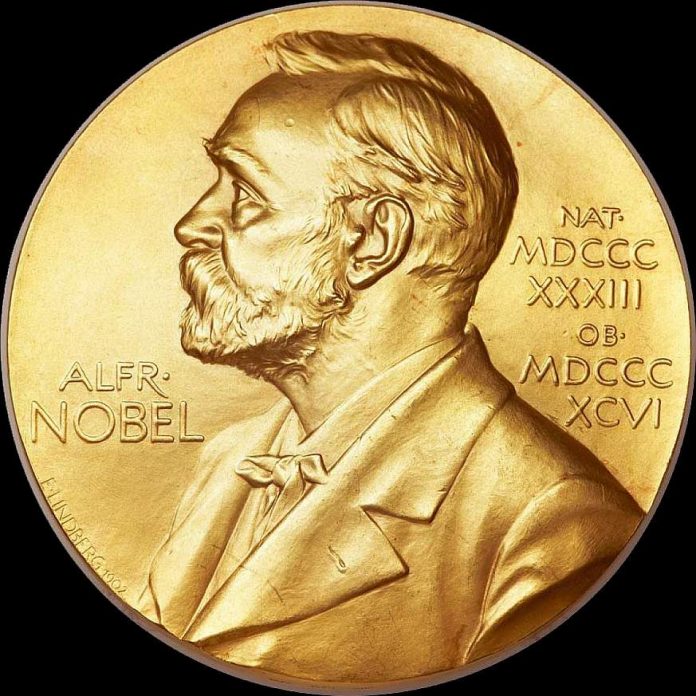The Nobel Prize for physics has been awarded to scientists from Japan, Germany and Italy. Syukuro Manabe, Klaus Hasselmann, Giorgio Parisi jointly won the 2021 Nobel Prize in Physics for “groundbreaking contributions to our understanding of complex physical systems”.
The winners were announced on October 5 by Goran Hansson, secretary-general of the Royal Swedish Academy of Sciences.
The Nobel Prize in Physiology or Medicine 2021 has already been announced.
About the Discoveries
Syukuro Manabe
Syukuro Manabe is a Japanese-American meteorologist and climatologist who led the projects that used computers to simulate natural climate variations and global climate change.
Starting in the 1960s, the Senior Meteorologist at Princeton University has been recognised for demonstrating how increased levels of carbon dioxide in the atmosphere lead to increased temperatures at the surface of the Earth. This finally led to the foundations for current climate models.
Klaus Hasselmann
Klaus Hasselmann is a German oceanographer and climate modeler. He is popular for his Hasselmann model of climate variability. Hasselmann has been awarded the Nobel Prize in Physics 2021 for his works in physical modeling of Earth’s climate, reliably predicting global warming, quantifying variability, and understanding complex systems.
He created a model that linked weather and climate, helping explain why climate models can be reliable despite the seemingly chaotic nature of the weather.
He also developed ways to look for specific signs of human influence on the climate.
Giorgio Parisi
Giorgio Parisi is an Italian theoretical physicist who has been researching quantum field theory, complex systems, and statistical mechanics.
Parisi is known for his best works such as QCD evolution equations known as Altarelli-Parisi or DGLAP equations. Parisi has been awarded the Nobel Prize in Physics 2021 for his works in the theory of complex systems, the discovery of disorder, and fluctuations in liquid or gases from atomic to planetary scales.
Giorgio Parisi, professor at Sapienza University of Rome, built a deep physical and mathematical model. That made it possible to understand complex systems in fields as different as mathematics, biology, neuroscience and machine learning.
Prize
The prestigious award comes with a gold medal and 10 million Swedish kronor (over $1.14 million).
Last year, the prize went to American Andrea Ghez, Roger Penrose of Britain and Reinhard Genzel of Germany for their research into black holes from which nothing, not even light, can escape.
Significance
This is the first time climate scientists have been awarded the Physics Nobel. The IPCC had won the Peace Nobel in 2007, an acknowledgement of its efforts in creating awareness for the fight against climate change, while a Chemistry Nobel to Paul Crutzen in 1995, for his work on the ozone layer, is considered the only other time someone from atmospheric sciences has won this honour.
Climate change is the biggest crisis that the world is facing today. The delayed recognition of climate science couldn’t have come at a more appropriate time. The recognition of Manabe and Hasselmann, therefore, is being seen as an acknowledgment of the importance that climate science holds in today’s world.
Hasselmann is best known for his work on identifying specific signatures, or “fingerprints” in the climate phenomena that enabled scientists to ascertain whether these were caused by natural processes or human activities.
The second or third assessment reports of IPCC were very circumspect in blaming human activities for rising temperatures. IPCC’s sixth assessment report which came out earlier this year,said that climate change is occurring because of human activities.
Manabe and Hasselmann too have been authors of previous IPCC reports. Both of them contributed to the first and third assessment reports, while Hasselmann was an author in the second assessment report as well.
Nobel Prize in Physics
The Nobel Prize in Physics is an annual award that is presented by the Royal Swedish Academy of Sciences to recognize the outstanding work of those in the field of Physics. The will of Alfred Nobel in 1895 established 5 Nobel Prizes namely in Physics, Chemistry, Literature, Physiology, and Nobel Peace Prize.
Over the coming days prizes will also be awarded for outstanding work in the fields of chemistry, literature, peace and economics. Stay tuned for all the updates.




